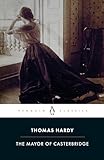Hiking is the only form of exercise I actually enjoy. Luckily, I live a mile from the San Gabriel mountains with their tangle of steep trails. In the last year, as I’ve hiked, I have begun listening to stories and novels on my iPhone, and this has transformed an enjoyable pastime into a deep pleasure. Recently I described my new habit to another novelist, who recoiled, shaking her head. “I’m a firm believer in the imaginative space created by the printed page,” she said.
So what about the imaginative space created by the audible page?
Of course, sitting and reading, lying down and reading, chaise lounging and reading are lovely; the body is still, eyes scan the page, the brain avails itself of the printed words, interior worlds bloom. Scientists tell us that, when reading, we have the same, if muted, responses to described or dramatized experience as we do to the real thing. Muscles tense. Hearts pound. Tears well.
If I am seated or reclining and still, I much prefer reading the printed page. Being read to is too passive an activity, I’m apt to get restless or, worse, fall asleep.
Walking, however, my listening capabilities are enhanced; simple physical activity, I believe, sharpens concentration by occupying the senses just enough to allow a purer attention to the narrative.
In this sense, walking is like doodling and knitting, which busy the hands and free the mind. (I always wondered why my grandmother loved to knit as she watched TV.) When hiking, I’m watching my step, I’m noting wildflowers, poison oak, the view; I’m keeping an eye on the dog, looking out for snakes; meanwhile, my deeper attention is engaged with the story leaking from my ear buds.
I have listened to news podcasts, and interviews, but these tend to make me mutter and twitch. Narrative and walking—as Chaucer knew—are a fortuitous match. They twin beautifully; listeners follow the plot, the thread, the branching path. Words and heartbeats, sentences and breaths, steps and plot align in ever new, complementary rhythms.
And there is another result: the landscape becomes festooned with fictional memories.
I remember, always with a pang, exactly where, on the trail, Katherine Mansfield’s valiant, plucky fly finally succumbed after his fourth bath in ink. A series of uphill switchbacks evokes the astonishing description of a young man’s madness in Nabokov’s “Signs and Symbols” read sentence by perfect sentence by Mary Gaitskill:
Clouds in the staring sky transmit to one another, by means of slow signs, incredibly detailed information regarding him. His inmost thoughts are discussed at nightfall, in manual alphabet, by darkly gesticulating trees.
I don’t remember where I read the physical books I read. I must have read them somewhere—in bed, on the couch, in chairs about the yard.
On the other hand, I recall precisely how I climbed up and down a steep fire road as the Earnshaws and Lintons moved back and forth between Thrushcross Grange and Wuthering Heights. And right where the road curves behind the mountain, I became so maddened by Catherine Linton’s hysteria—today, she’d rate as borderline—that I pressed pause and stamped down the mountain in far preferable silence. (I recovered and later listened to the end, although I will always associate the book with a certain prickling of irritation—whether at the dry dusty summer heat of the hike or Nellie Dean’s meddling.)
 A rocky switchback on a different trail recalls “Lawyer Kraykowski’s Dancer,”Witold Gombrowicz’s obsessive stalker who responds to insult as most of us respond to tender endearment. That madman shares those uphill miles with the more benignant huffing and sputtering Mr. Panks—not to mention the debtors prison and the Office of Circumlocution, the mild Mr. Clennam, the sweetness of Little Dorrit, the Madoff-like ruin of Mr. Merdle—40 hours of hiking with Little Dorrit claims a broad swath of ground.
A rocky switchback on a different trail recalls “Lawyer Kraykowski’s Dancer,”Witold Gombrowicz’s obsessive stalker who responds to insult as most of us respond to tender endearment. That madman shares those uphill miles with the more benignant huffing and sputtering Mr. Panks—not to mention the debtors prison and the Office of Circumlocution, the mild Mr. Clennam, the sweetness of Little Dorrit, the Madoff-like ruin of Mr. Merdle—40 hours of hiking with Little Dorrit claims a broad swath of ground.
 At the gates of an old estate I wept at the last paragraphs of Alice Adam’s “Roses, Rhododendron.” By a one-mile marker, I wept as Tobias Woolf read Stephanie Vaughan’s “Dog Heaven.” And here in my own neighborhood, a green-tiled house is inextricably tied to the moment when, on a quick walk, I listened as Michael Henchard, bedeviled by rum at a country fair, sold his young wife (and child) to the highest bidder in the very first chapter of The Mayor of Casterbridge.
At the gates of an old estate I wept at the last paragraphs of Alice Adam’s “Roses, Rhododendron.” By a one-mile marker, I wept as Tobias Woolf read Stephanie Vaughan’s “Dog Heaven.” And here in my own neighborhood, a green-tiled house is inextricably tied to the moment when, on a quick walk, I listened as Michael Henchard, bedeviled by rum at a country fair, sold his young wife (and child) to the highest bidder in the very first chapter of The Mayor of Casterbridge.
Thus, miles are walked, books are read and the landscape is littered with dialogue and description, desolation, striving and love. Literary moments are overlaid on views, scattered along the trail, and hung like ornaments on the rocks and bushes, the slow clouds and darkly gesticulating trees.
Resources for reading and walking: Miette’s Bedtime Story Podcasts, New Yorker Fiction Podcasts, and Audible Books.









